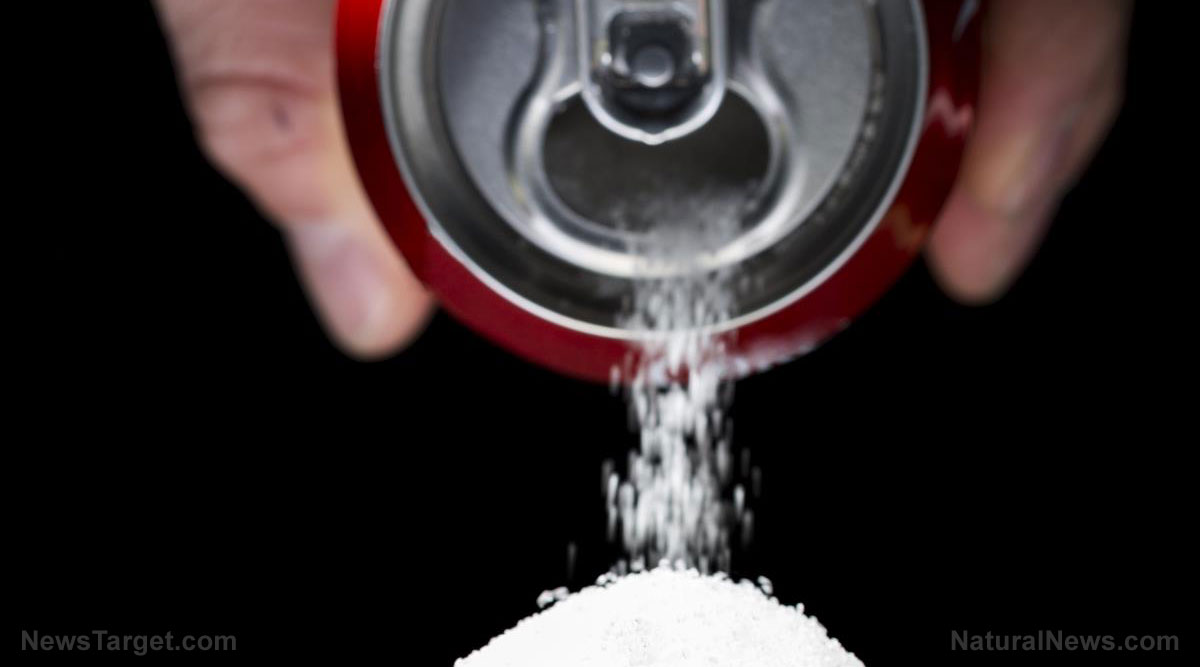Study finds adjusting the price of 7 key foods may save thousands of lives every year
12/20/2017 / By Frances Bloomfield

Reducing the number of deaths related to cardiovascular diseases and diabetes can be accomplished through simple price changes. This was the suggestion put forth by a radical new study, one spearheaded by Tufts University researchers. They discovered that taxing unhealthy foods (processed meat, unprocessed red meat, and sugar-sweetened beverages) while subsidizing healthy foods (fruits, vegetables, whole grains, and nuts/seeds) could save thousands of lives every year.
Editor’s note: We believe the free market, not incompetent government, should set the price of foods. This means we oppose the current subsidies on corn and its derivatives, including corn syrup. Cane sugar is also heavily subsidized in America today. This article explores how food taxes and food subsidies could be approached with a health goal in mind. However, our view is that the government is the least qualified entity to set prices on anything, including health care.
To gauge the possible effects of these subsidies and taxes, the researchers utilized national data in a comparative risk assessment model. The data, which was from 2012, was on selected food item consumption in the United States, based on age, sex, and socioeconomic status (SES). Altering the prices of the seven food items used in the study by as little as 10 percent each could prevent about 23,000 deaths annually.
That number represented 3.4 percent of all deaths from cardiometabolic disease, or conditions relating to the cardiovascular system and metabolism. Increasing the taxes and subsidies to 30 percent, on the other hand, was noted for having an even more dramatic impact. This change could reduce cardiometabolic disease deaths by about 9.2 percent, or 63,000 deaths per year.
Moreover, the researchers noticed that the greatest proportional reduction was for stroke, then diabetes. The stroke deaths would most likely be affected by fruit and vegetable subsidies, while sugar-sweetened beverage taxes would do just that for diabetes deaths.
The researchers have acknowledged, however, that the results of the study depict the average effect of these price changes. Fiscal intervention efficacy would still be dependent on the dietary habits of consumers.
On the results of their research, senior author and dean of the Friedman School of Nutrition Science and Policy at Tufts, Dariush Mozaffarian remarked: “Our findings on disparities are particularly relevant today, with growing inequities in diet and cardiometabolic disease. The current strategies, such as education campaigns or food labeling, have improved overall dietary habits, but much less so among people with lower socioeconomic status.
“These results suggest that financial incentives to purchase healthy food, and disincentives to purchase unhealthy foods, can prove successful in meaningfully reducing cardiometabolic disease disparities.”
As part of their study, researchers looked at SES and educational attainment. In doing so, they found that Americans with a lower educational background would have a more significant number of preventable deaths compared to those with college degrees. (Related: Navajo Nation removes tax on healthy produce, raises tax on junk food in public health effort.)
José L. Peñalvo, lead corresponding author and adjunct assistant professor at the Friedman School, added: “We found that modest price changes on healthy and unhealthy foods would help decrease overall cardiometabolic deaths and also reduce disparities between socio-economic strata in the U.S.—the largest changes coming from reducing the prices of fruits and vegetables and increasing the price of sugary drinks.”
More than just saving lives in America, the act of taxing junk foods and subsidizing healthier ones can benefit people from other continents. In Australia, for instance, a team of researchers from the University of Melbourne employed a similar method to the Tufts researchers. This time, however, they proposed taxing all high-sugar, -salt, and -saturated-fat foods, save for whole foods such as milk or meat. Instead of simply saving thousands of lives, they discovered that their suggested taxes and subsidies would add an extra 500,000 years of healthy life to the 23 million-strong Australian population.
“We know there are multiple nutrients that contribute to unhealthy diets, so this is better than just demonizing sugar, salt or fat on their own. Anything that can encourage more fruit and vegetable intake is also great,” said Gary Sacks, Senior Research Fellow at the World Health Organization (WHO), who was unaffiliated with the study.
Read up on more news stories regarding food and nutrition, feel free to visit Longevity.news today.
Sources include:
Tagged Under: cardiovascular disease, diabetes, disease prevention, food, food prices, groceries, healthy food, nutrition, stroke, sugar



















